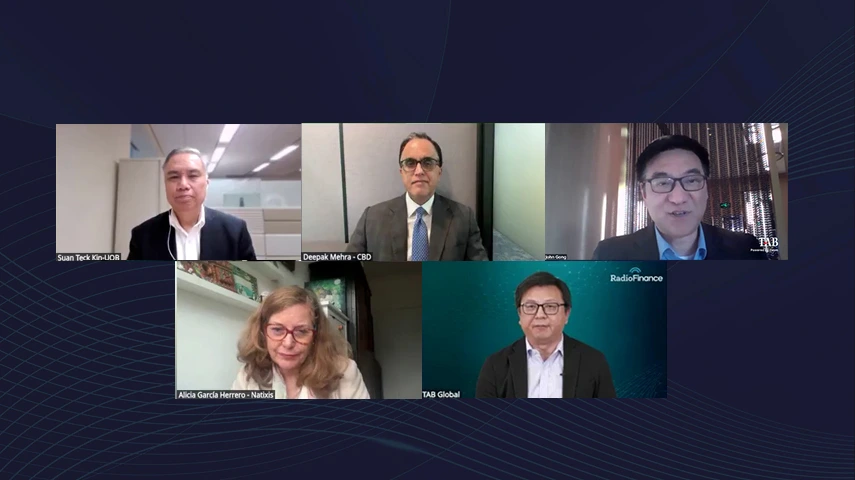
At the Finance Thailand Leading Practitioner Roundtable 2024, industry leaders discuss strategies to address the high costs of regulatory compliance, technology modernisation challenges, and the importance of strategic collaborations in the Thai banking sector.
Financial technology experts and practitioners gathered to discuss the theme "Bridging the digital divide between innovations and challenges in Thai banking". The roundtable dialogue aimed to explore and devise strategies to overcome hurdles in digital transformation, particularly focusing on integrating cutting-edge technologies with legacy systems and addressing data security and privacy concerns.
Participants acknowledged the urgent need for Thai banks to enhance customer experiences to remain competitive amid rapidly evolving consumer behaviours and expectations. They emphasised that digital transformation requires not just the implementation of new technologies but also a fundamental shift in organisational culture and business model to meet the evolving needs of customers. Additionally, there was a strong focus on the need for technology modernisation, including the migration to cloud-based systems, to increase scalability, agility, and efficiency.
The regulatory environment, facilitated by the Bank of Thailand (BoT), has been supportive of the emergence of virtual banks. However, participants highlighted significant challenges banks face in accelerating digital transformation and technology modernisation. They noted that while regulatory support is commendable, integrating new technologies with existing systems without disrupting services remains a substantial challenge. Moreover, the high costs associated with regulatory compliance, particularly around data security and privacy regulations, pose a significant obstacle.
The BoT's framework for issuing virtual bank licenses was a significant point of discussion. The application process for these licences started in March, and will end by September 2024, with successful applicants expected to commence operations by 2025. Despite the regulatory support, banks are expected to navigate hurdles in compliance, particularly regarding data security, operational resilience, and privacy regulations. Ensuring regulatory compliance, especially with data security and privacy laws, is seen as a major obstacle in the digital transformation journey. One participant noted, "The high costs, lengthy review and complexity of meeting regulatory requirements can slow down the pace of financial innovation and inclusion that such a scheme is designed to enable."
The concern is that the high cost of regulatory compliance might be more of a limitation than an opportunity for banks. Another participant remarked, "Given the stringent requirements and significant compliance costs, these virtual bank licences could end up being more restrictive than beneficial, potentially limiting the scope for innovation."
Strategic collaborations enabled by microservice and application programming interfaces (APIs) based system architecture were emphasised as crucial for fostering a thriving digital banking ecosystem. Participants discussed that partnerships between banks, fintechs, and technology providers are essential for rapid innovation and enhanced customer service. They highlighted the importance of modern IT infrastructure in developing new digital banking solutions and managing associated risks effectively.
Participants also discussed how the strategies of leading digital banks globally based on the TABInsights Global 100 Digital Bank Ranking could be adapted to the Thai context to drive local innovation and growth. They noted that by learning from top digital banks worldwide, Thai banks can adopt successful strategies and tailor them to fit the local market and regulatory environment.
The roundtable addressed the technical complexities and operational resilience concerns associated with transitioning to cloud-based platforms. Participants emphasised that robust IT infrastructure and effective risk management practices are essential for ensuring the security and compliance of new digital banking solutions. The role of data analytics and artificial intelligence (AI) in personalising banking services and managing risks was also highlighted as critical to the future of digital banking.
The discussion also touched on the global system outage caused by CrowdStrike, which highlighted vulnerabilities in relying heavily on cloud services. A cloud technology specialist commented on the responses of cloud service providers, stating, cloud service providers are working to offer more robust solutions to ensure resilience and prevent such widespread outages. Their quick response to the CrowdStrike incident has shown that there has been a high level of preparedness and rapid recovery when such highly disruptive incidents occur, to provide immediate and impactful support.
The roundtable participants concurred on a few key themes: the importance of regulatory alignment and support in digital banking transformation, the necessity of strategic collaborations to drive innovation, and the critical role of modern IT infrastructure and modernisation in enabling digital banking solutions while balancing effective risk management.
The session ended with a call for continuous dialogue and collaboration to successfully navigate the digital transformation journey. They emphasised that successful digital banking transformation requires continuous collaboration, innovation, and a strong commitment to excellence.

As the global banking industry braces for a challenging 2025, it faces economic headwinds, geopolitical tensions, trade realignments, and the push for sustainability and technological innovation

The AWS Financial Services Symposium Singapore 2024 showcased how AI, data, and cloud technologies are revolutionising financial services. Industry leaders from AWS and HSBC shared insights into advancing innovation, regulatory responsibility…

On the eve of the Singapore Fintech Festival 2024, TAB Global and Temenos hosted an exclusive CXO networking reception at Swissotel, The Stamford. The gathering provided a relaxed setting for executives across the industry to connect and…

The Finance Philippines 2024: Leading Practitioner Roundtable on Technology Modernisation for Digital Banking and Lending Innovation explored the critical role of foundational technologies, financial inclusion, identity verification systems,…

On June 21, The Asian Banker held the 2024 Future of Finance China Summit in Beijing, themed "Challenges and Vision". The year 2024 is expected to be a challenging one globally due to intensified geopolitical tensions and increased trade…

By continuing to browse this website, you agree to our privacy policy.